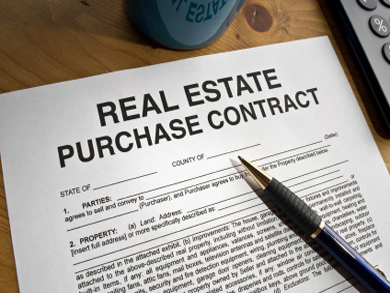Hotline
 CN:0086-0755-86533531 US:407-930-8082, 212-653-8082
CN:0086-0755-86533531 US:407-930-8082, 212-653-8082
 info@celeblaws.com
info@celeblaws.com
 中文版
中文版
 CN:0086-0755-86533531 US:407-930-8082, 212-653-8082
CN:0086-0755-86533531 US:407-930-8082, 212-653-8082
 info@celeblaws.com
info@celeblaws.com
 中文版
中文版
Real Estate Purchase Introduction (1)
刘庆贺律师事务所法律专栏/Column of Law Offices of Liu and Associates, P.A.
Crystal Yu, Esq. & Mark McMillan, Esq.
The purchase of land, commercial property, or a home is often a stressful endeavor. While buying real estate is basically an exchange between a buyer and seller, there are many legal requirements that each party must perform in order to transfer property from one person to another.

Making your way from the first tour of a property to closing the transaction can be a frustrating and complicated ordeal. However, you can take some of the confusion out of the process by being prepared throughout the process.
While every transaction is different, Floridians will go through the following steps in a real estate transaction:
· Offer and Counter-Offer. Through proper communication between the real estate representatives of both parties, when the seller of the property accepts the buyer's offer, the transaction process is officially launched. Both parties need to sign an agreement to fix the recommended price. At this point, the seller can ask the buyer to pay the deposit. The signed contract is sent to a lawyer or title company, and the professional initiates the transfer of property rights to transfer ownership of the property to the new owner in accordance with the procedures of the local laws of Florida. At this stage, your real estate attorney should confirm the details of the property, such as the correct address, the item to be sold, the area and description of the land, and other items listed in the contract.
· Disclosure. The seller must inform the buyer of any known issues regarding the property a being sold which is often referred to as disclosure, these may include past repairs, environmental hazards, and any other matters that may affect the value of the property. The seller must provide the buyer with a disclosure list by the deadline, and the buyer must confirm all disclosures before the sale is completed.
· Inspection. The buyer has the right to perform due diligence on the property within the time specified in the purchase contract. There are many different types of inspections in Florida. When purchasing a home, the home inspector is usually the first person to request an inspection of the property, and potential owners may also require termite inspections and drywall checks to ensure that the structure of the home, whether residential or commercial, is safe. The buyer and the seller also need to sign a drywall disclosure form to prove that the seller has no reason to believe that there are any drywall defects at the time of sale. It may also require a real estate surveyor to determine the exact boundaries of the property, whether it does not impede access to the road, and whether any encroachment on the property may cause problems for the buyer.
· Buyer's request. After the inspection is completed, the buyer can ask the seller to complete the repair work, lower the sales price, or pay part or all of the repair cost based on the inspection results. The buyer can also ask the seller to provide a warranty to cover the main part of the house, such as the roof and stove, for one year or more after the sale. The seller may agree to some or all of the buyer's request, refuse to repair, negotiate the price. If the buyer does not accept, as long as the due diligence period of the contract has not been completed, he can continue to negotiate or close the transaction with the seller and return the deposit in full.
· Ensure a mortgage. Once the final price is agreed, buyers who need a loan to buy a home must apply for a loan. In most cases, the buyer must first obtain the lender's prior approval to make an offer and must provide the lender with proof of homeowner insurance, flood insurance, and other policies. Once the buyer has obtained a certain amount of approval, the lender will send a licensed appraiser to the property to estimate its value. If the purchase price is higher than the appraised value, the buyer can ask the seller to lower the price.

· Pre-closing. Prior to the closing, the delivery date needs to be finalized and all sales paperwork collected, including contracts, title insurance, credit forms, and copies of all documents required to complete the sale. The buyer needs to know the final cash figures he needs to provide, usually in the form of a cashier's check.
· Closing. Closing usually takes place in a lawyer's office, a real estate office or a title company’s office. Both the buyer and the seller are present in person to provide a formal signature for all documents related to sales and loans, and the representative of the title company records the new deed in the municipal record for the purpose of registration. After signing all the documents and paying the seller, the buyer will take the key and formally become the new owner of the property.
A Skilled Attorney Will Act on Your Best Interests
No matter if you're buying or selling, you should have a representative working at your side throughout the process. It's not a good idea to rely on the other’s party’s representative to guide you, as he or she is likely paid to minimize cost to the other party. While an agent or realtor can answer certain questions you may have, only your attorney will act in your best interests. Contact us today to speak to a member of our legal team about your real estate transaction.
Copyright belongs to Law Offices of Liu and Associates, P.A.
All materials have been prepared for general information purposes only to permit you to learn more about our firm, our services and the experience of our attorneys. The information presented is not legal advice, is not to be acted on as such, may not be current and is subject to change without notice.

Telephone:407-930-8082 (US Orlando)
Telephone:212-653-8082 (US New York)
Telephone:0086-0755-86533531 (CN Shenzhen)
Email:info@celeblaws.com
Orlando: 5050 W Colonial Drive, Orlando, FL 32808, USA
New York: 276 Fifth Avenue Suite 704, New York, NY 10001, USA
Shenzhen:5109 SCIA Tower Tinghai Road, Room 2402, Nanshan Area, Shenzhen, China